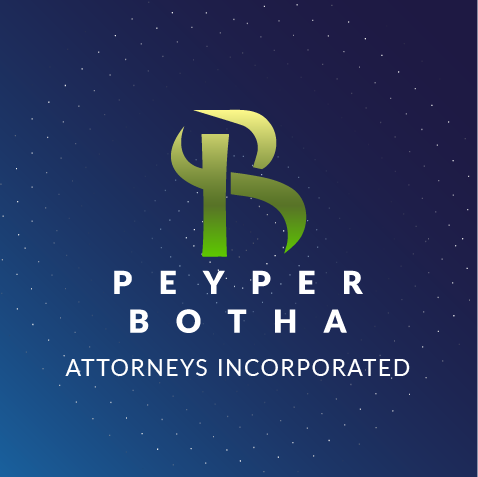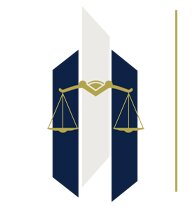Best Communications & Media Law Lawyers in Bloemfontein
Share your needs with us, get contacted by law firms.
Free. Takes 2 min.
List of the best lawyers in Bloemfontein, South Africa
About Communications & Media Law in Bloemfontein, South Africa
Communications & Media Law in Bloemfontein, South Africa, encompasses the legal regulations and standards that apply to the creation, dissemination, and consumption of information via various media platforms, including print, broadcast, and digital mediums. The field covers a wide range of topics such as press freedom, defamation, privacy, broadcast regulation, advertising standards, intellectual property rights, and online content. Given Bloemfontein’s role as a major regional hub and judicial seat, its legal professionals must be well-versed in both national and provincial legislation affecting media outlets, journalists, content creators, and private individuals.
Why You May Need a Lawyer
There are several situations where legal assistance in Communications & Media Law is critical in Bloemfontein:
- Facing defamation claims involving published or broadcast material.
- Resolving disputes about copyright or intellectual property infringement.
- Responding to government or regulatory body inquiries about content or licensing.
- Protecting privacy rights against intrusive news coverage or unlawful data collection.
- Drafting consent, licensing, or syndication agreements.
- Handling employment or contractual issues within media organizations.
- Defending against criminal charges such as hate speech or incitement under relevant statutes.
- Resolving advertising standard complaints or compliance issues.
- Navigating telecommunications law, including licensing and compliance for broadcasters and ISPs.
Local Laws Overview
Communications & Media Law in Bloemfontein is governed primarily by South African national legislation, but provincial and local contexts can influence interpretation and enforcement. Key statutes and bodies include:
- Constitution of South Africa: Guarantees freedom of expression and the press, subject to limitations.
- Broadcasting Act 4 of 1999: Governs broadcast licensing, public and commercial broadcasters.
- Electronic Communications Act 36 of 2005: Covers telecommunications, broadcasting, and spectrum use.
- Films and Publications Act 65 of 1996: Regulates online content and classification of media.
- Protection of Personal Information Act (POPIA): Regulates processing and protection of personal data.
- Press Code of Ethics: Outlines standards for responsible journalism.
- ICASA: The Independent Communications Authority of South Africa oversees regulatory compliance.
While these are national frameworks, enforcement, practical application, or dispute resolution may be centered in Bloemfontein due to its High Court and regulatory offices. Local knowledge of the media landscape, judicial trends, and procedural requirements is especially valuable.
Frequently Asked Questions
What types of issues do Communications & Media Law lawyers handle?
Lawyers in this field assist with defamation, copyright infringement, licensing, regulatory compliance, privacy breaches, advertising regulations, and challenges to freedom of expression.
How do I respond to a defamation claim in the media?
It is wise to consult a lawyer who can advise on your rights, potential defences (such as truth or fair comment), and negotiate settlements or represent you in court if needed.
Can I publish any information I obtain as a journalist or content creator?
No. Certain information is protected by privacy, copyright, or state security laws. Legal advice is important to ensure compliance and reduce risk of litigation.
What is the process for filing a complaint about unfair media coverage?
Complaints can be lodged with regulatory bodies such as the Press Council of South Africa or the Broadcasting Complaints Commission. Legal assistance can help ensure a formal, effective complaint is made.
How does POPIA impact media organizations and individuals?
POPIA requires responsible collection, storage, and processing of personal data. Non-compliance can result in substantial penalties.
What are the penalties for violating advertising standards?
Penalties can range from withdrawal of adverts to fines, or even suspension of licenses for repeat or severe violations. Legal representation helps navigate disciplinary proceedings.
Can online content creators and bloggers face legal action?
Yes. Online publishers are subject to the same laws as traditional media, including defamation, copyright, and privacy obligations.
Who regulates broadcasters in Bloemfontein?
Broadcasters are regulated nationally by ICASA (Independent Communications Authority of South Africa), with guidelines applied locally.
What steps can I take if my privacy has been violated by the media?
You may sue for damages, require a retraction, or seek intervention through regulatory bodies. A lawyer can help assess your options.
Do I need special permission to start a community radio or TV station?
Yes. You must apply for a license from ICASA and comply with technical, content, and operational requirements.
Additional Resources
Individuals seeking advice or further information in Bloemfontein may find the following resources useful:
- Press Council of South Africa: Complaint resolution and press ethics oversight.
- Broadcasting Complaints Commission of South Africa (BCCSA): Mediates broadcast-related disputes.
- Independent Communications Authority of South Africa (ICASA): Licensing and regulatory compliance for broadcasters and telecommunications providers.
- Legal Aid South Africa: Offers assistance for qualifying individuals.
- Law Society of South Africa: Directory of legal practitioners, including those specializing in media and communications law.
- Universities and Law Clinics: University of the Free State and other institutions may host clinics or provide guidance in specialized legal matters.
Next Steps
If you believe you need legal assistance in Communications & Media Law in Bloemfontein, follow these steps:
- Identify the specific nature of your issue (e.g., defamation, privacy, licensing, copyright).
- Gather all relevant documents and evidence, such as publications, correspondence, and contracts.
- Consider reaching out to one of the recommended resources or regulatory bodies for initial guidance.
- Contact a qualified lawyer specializing in Communications & Media Law. The Law Society of South Africa’s directory can help you locate practitioners in Bloemfontein.
- During your consultation, clearly outline your objectives, concerns, and desired outcomes.
- Follow your lawyer’s advice regarding any immediate actions, deadlines, or further steps.
Taking proactive steps and seeking professional guidance early can help protect your legal rights and position you for the best possible outcome in any communications or media-related matter.
Lawzana helps you find the best lawyers and law firms in Bloemfontein through a curated and pre-screened list of qualified legal professionals. Our platform offers rankings and detailed profiles of attorneys and law firms, allowing you to compare based on practice areas, including Communications & Media Law, experience, and client feedback.
Each profile includes a description of the firm's areas of practice, client reviews, team members and partners, year of establishment, spoken languages, office locations, contact information, social media presence, and any published articles or resources. Most firms on our platform speak English and are experienced in both local and international legal matters.
Get a quote from top-rated law firms in Bloemfontein, South Africa — quickly, securely, and without unnecessary hassle.
Disclaimer:
The information provided on this page is for general informational purposes only and does not constitute legal advice. While we strive to ensure the accuracy and relevance of the content, legal information may change over time, and interpretations of the law can vary. You should always consult with a qualified legal professional for advice specific to your situation.
We disclaim all liability for actions taken or not taken based on the content of this page. If you believe any information is incorrect or outdated, please contact us, and we will review and update it where appropriate.











